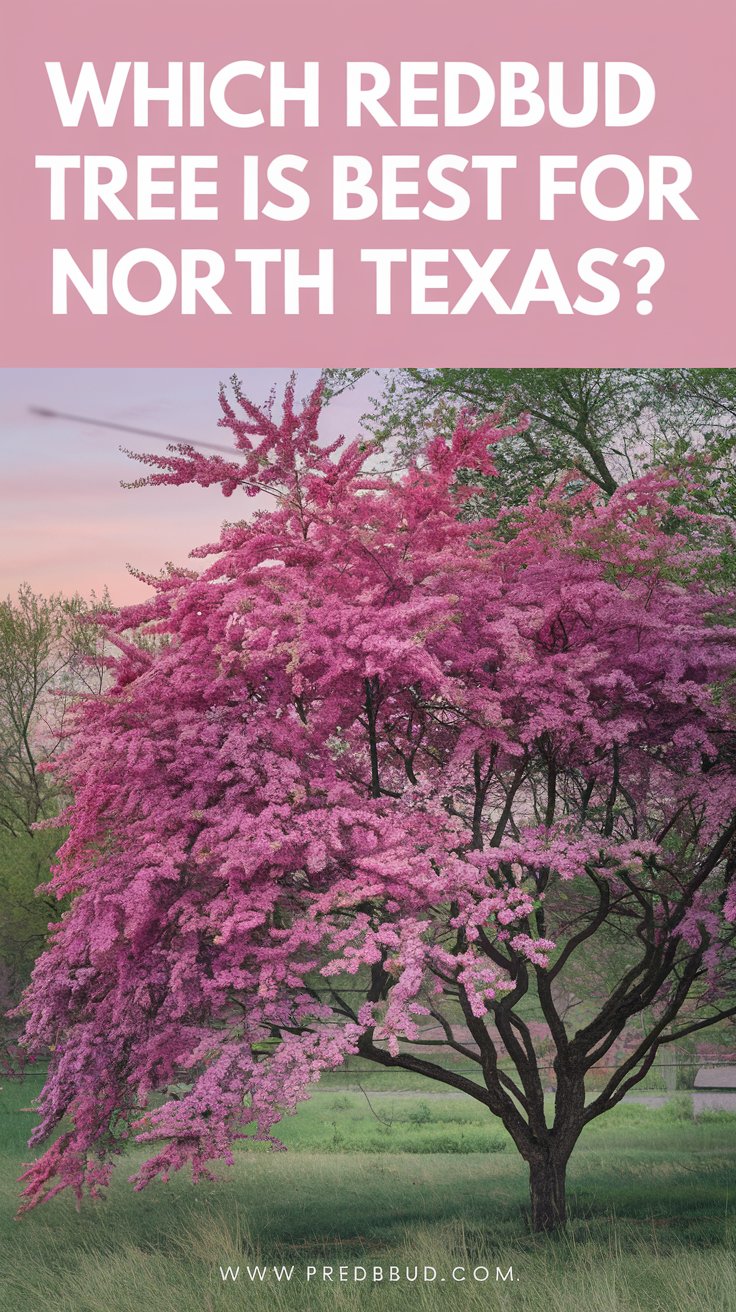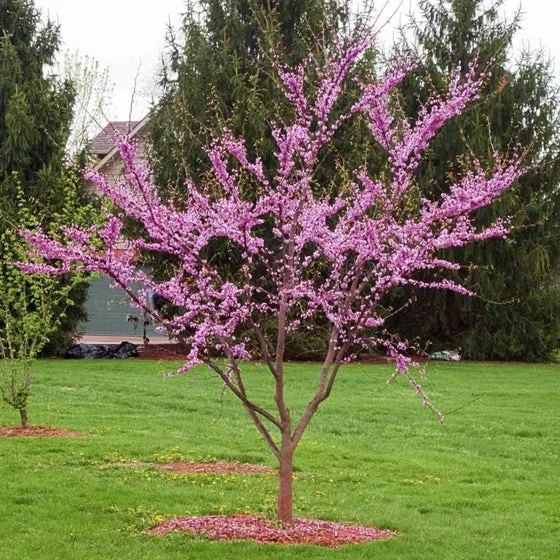Looking for redbud trees to add some ornamental value to your gardens? Check out the best redbud trees that can be grown in North Texas
Redbud trees belong to the Fabaceae family and are native to Eastern North America, from Southern Michigan to Central Mexico. They are priced because of their ornamental nature, rapid growth, and ease of maintenance. You are at the right place if you want some redbud trees that can easily adapt to the Texas climate. This article will discuss the best redbud trees for North Texas and their growth requirements. Let’s jump in!

Top 5 Redbud Trees for North Texas
Here are the top 5 redbud varieties you can grow in North Texas, arranged in ascending order of their adaptability and visual appeal.
1. Eastern Redbud

Botanical name: Cercis canadensis
Eastern Redbud can reach a height of 30 feet with a short trunk and spread-out branches. It is also the state tree of Oklahama and is one of the first trees to flower in spring. The flowers are produced in clusters in shades of pink and magenta. It is a good tree to grow in North Texas, but its drought-sensitive nature and low heat tolerance can cause some concerns for a new grower.
2. Forest Pansy Redbud
 Image : ncsu
Image : ncsu
Botanical name: Cercis canadensis ‘Forest Pansy’
Although the Forest Pansy does not have high heat tolerance, it is highly valued because of its purple and red leaves that resemble hearts. It also produces pink flowers directly from the trunk and stems during the spring. While growing in North Texas, it can benefit from some protective shade in the afternoons.
3. Texas Redbud
Image : verdanttreefarm
**Botanical name: **Cercis canadensis var.texenis
Texas redbud can get up to 40 feet in height and 20 feet in width in southwestern North America. The young trees are irregular in shape, and you can train them for vertical growth. While its leaves are shiny and dark green, the flowers are pinkish and appear in the spring.
This redbud is a good choice because of its sturdy nature and low maintenance.
4. Mexican Redbud
 Mexican Redbud, Cercis mexicana, flowering branch, at Visalia CA USA, at Monrovia Nursery Co.
Mexican Redbud, Cercis mexicana, flowering branch, at Visalia CA USA, at Monrovia Nursery Co.
Botanical name: Cercis canadensis var.mexicana
If you are looking for a small space tree that is adaptable and easy to care for, you cannot go wrong with the Mexican redbud variety. This plant blossoms in summer to produce rosy-violet flowers, but what makes it truly stunning is its golden-green foliage. It is a moderate grower that can stretch up to 20 feet in its natural habitat.
5. Oklahoma Redbud
 Image : Wikipedia
Image : Wikipedia
**Botanical name: **Cercis canadensis var.texensis’Oklahoma’
This is a refined cultivar of the Texas redbud and is the best-suited variety for North Texas. It reaches between 15 and 25 feet in height and requires minimum care after establishment. However, its exceptional heat tolerance, combined with its ability to thrive in both clay and alkaline soils, makes it the best plant for North Texas’s hot summers.
Comparison Table
Tree VarietyHeightHeat ToleranceFlower ColorMaintenanceEastern Redbud20-30 feetModeratePink/MagentaModerateForest Pansy Redbud20-25 feetLow (Needs Shade)PinkHigh (Shade Needed)Texas RedbudUp to 40 feetHighPinkLowMexican Redbud15-20 feetHighRosy-VioletLowOklahoma Redbud15-25 feetVery HighDeep PinkVery Low
In conclusion, the Oklahoma Redbud shines as the top choice for North Texas due to its unmatched heat tolerance, minimal care requirements, and stunning deep pink flowers. If you’re looking for a resilient and visually striking addition to your landscape, the Oklahoma Redbud is your perfect match. Happy planting!
FAQs
Which redbud tree has the best drought resistance? Answer: The Oklahoma Redbud and Mexican Redbud are known for their high drought tolerance, making them excellent choices for hot, dry climates.
How fast do redbud trees grow? Answer: Most redbud varieties are moderate growers, averaging 1-2 feet per year under ideal conditions.
When should I plant a redbud tree in North Texas? Answer: The best time to plant a redbud tree is in the fall or early spring to allow the roots to establish before summer heat arrives.
